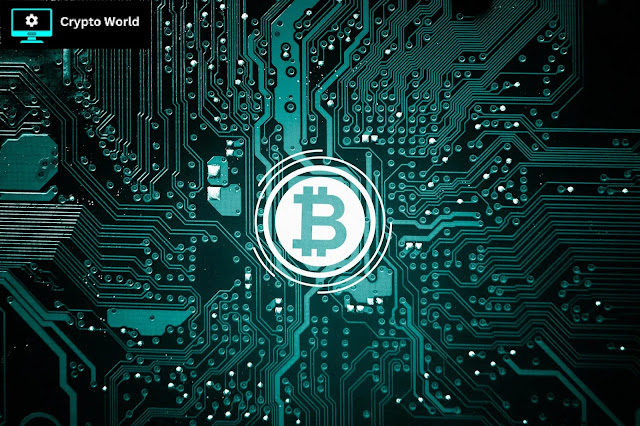The Legal Landscape of NFTs Regulations and Challenges

The rise of Non-Fungible Tokens (NFTs) has sparked significant interest and investment in digital assets. These unique digital representations of ownership and authenticity, often associated with art, music, and virtual goods, are transforming how we perceive and trade digital content. However, the rapid proliferation of NFTs has also raised numerous legal questions and regulatory challenges. This article explores the legal landscape of NFTs, examining the regulations governing them and the challenges they present.
 The Legal Landscape of NFTs Regulations and Challenges
The Legal Landscape of NFTs Regulations and Challenges
Introduction to NFTs
Non-Fungible Tokens (NFTs) are unique digital assets stored on a blockchain, certifying ownership and authenticity of a specific item. Unlike cryptocurrencies like Bitcoin or Ethereum, which are fungible and can be exchanged on a one-to-one basis, NFTs are distinct and cannot be exchanged equivalently. NFTs have found applications in various fields, including digital art, music, gaming, and virtual real estate, making them a revolutionary tool for creators and collectors alike.
Regulatory Frameworks for NFTs
The regulatory landscape for NFTs is still evolving, with different jurisdictions adopting varying approaches. Key considerations include:
Classification: Determining whether NFTs are securities, commodities, or another asset class is crucial for regulatory purposes. In the U.S., the SEC has yet to provide clear guidance, leading to uncertainty.
Jurisdictional Differences: Different countries have different regulatory frameworks for digital assets. For example, the European Union is working on comprehensive regulations through the Markets in Crypto-Assets (MiCA) proposal, while countries like China have strict bans on crypto-related activities.
Legal Status: The legal recognition of NFTs varies, impacting their enforceability in contracts and disputes. Clear legal definitions are needed to address ownership rights and transferability.
Intellectual Property Issues
NFTs intersect with intellectual property (IP) law in several ways:
Copyright Infringement: Minting an NFT that includes copyrighted material without authorization can lead to legal disputes. Both creators and buyers need to ensure proper IP rights are secured.
Licensing Agreements: NFTs can include embedded licensing terms, specifying how the digital asset can be used. Understanding these terms is essential for both creators and purchasers.
Ownership and Authenticity: While NFTs certify ownership of a digital asset, the underlying IP rights may still belong to the original creator, leading to potential conflicts over usage and reproduction.
Tax Implications of NFTs
The tax treatment of NFTs varies by jurisdiction and involves several complexities:
Capital Gains Tax: Selling an NFT at a profit may trigger capital gains tax. The taxable event and rate depend on the holding period and applicable tax laws.
Income Tax: Creators earning income from selling NFTs may be subject to income tax. Proper reporting of income and expenses is crucial for compliance.
Valuation Challenges: Determining the fair market value of NFTs for tax purposes can be challenging, given their unique and fluctuating nature.
Anti-Money Laundering (AML) and Know Your Customer (KYC) Compliance
As NFTs gain popularity, regulatory bodies are increasingly focusing on AML and KYC compliance:
AML Regulations: Platforms facilitating NFT transactions may be required to implement AML measures to prevent illicit activities, such as money laundering and terrorist financing.
KYC Requirements: Ensuring the identity of users is vital for compliance with KYC regulations. This can be challenging given the pseudonymous nature of blockchain transactions.
Reporting Obligations: Regulatory bodies may impose reporting requirements for high-value NFT transactions to monitor and mitigate financial crimes.
Consumer Protection Concerns
With the surge in NFT popularity, consumer protection issues have come to the forefront:
Fraud and Scams: The NFT market has seen instances of fraud, including the sale of counterfeit NFTs and rug pulls. Buyers need to exercise caution and conduct due diligence.
Market Volatility: The value of NFTs can be highly volatile, leading to significant financial risks for investors. Clear disclosures and warnings are necessary to inform consumers.
Platform Reliability: The reliability and security of NFT platforms are crucial for protecting users' assets. Ensuring robust security measures and addressing potential vulnerabilities are essential.
Frequently Asked Questions about NFT Regulations
Are NFTs considered securities?
The classification of NFTs as securities is still unclear and varies by jurisdiction. In the U.S., the SEC has not provided definitive guidance, leading to ongoing debates and legal uncertainties.
What legal protections do NFT buyers have?
NFT buyers have limited legal protections due to the nascent regulatory landscape. Ensuring proper due diligence, understanding the terms of sale, and verifying the authenticity of the NFT are essential steps for buyers.
How can creators protect their intellectual property when minting NFTs?
Creators can protect their IP by securing copyrights before minting NFTs, embedding licensing terms in the NFT metadata, and using platforms that support IP protection features.
What tax obligations do NFT creators and buyers have?
NFT creators and buyers may be subject to various tax obligations, including capital gains tax and income tax. Proper reporting of transactions and seeking professional tax advice is recommended for compliance.
How can NFT platforms ensure AML and KYC compliance?
NFT platforms can ensure AML and KYC compliance by implementing robust identity verification processes, monitoring transactions for suspicious activities, and adhering to regulatory reporting requirements.

Conclusion
The legal landscape of NFTs is complex and rapidly evolving, with various regulatory, intellectual property, tax, and consumer protection challenges. As NFTs continue to grow in popularity, it is crucial for stakeholders, including creators, buyers, and platforms, to stay informed about the legal implications and comply with applicable regulations. Addressing these challenges will be key to ensuring the sustainable and secure growth of the NFT market.
Follow Affiliate Marketing For Beginners to stay updated on their latest posts!
0 comments
Be the first to comment!
This post is waiting for your feedback.
Share your thoughts and join the conversation.
